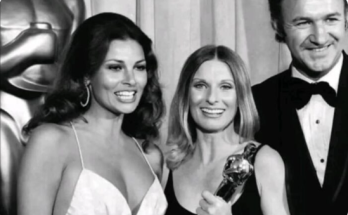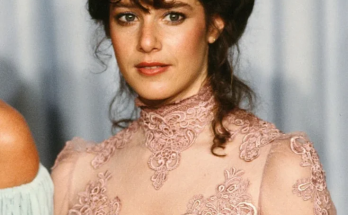In the world of American politics and conservative activism, public figures are often remembered for their speeches, campaigns, and high-profile battles. But on this somber day, at a memorial honoring the late conservative firebrand Charlie Kirk, it was not fiery rhetoric or grandstanding that captured the nation’s attention. Instead, it was the quiet, deeply personal words of Karoline Leavitt — the young Republican rising star who has quickly become one of the most recognizable voices of her generation.
The setting was deeply emotional. Friends, family, allies, and political leaders gathered in a large hall draped in white lilies, photographs of Kirk smiling in earlier days flashing across the large screens. The memorial was meant to celebrate Kirk’s life — his work as a founder of Turning Point USA, his impact on conservative youth, and his fierce defense of traditional values. Yet for many in the room, it was also an irreplaceable loss. The air was heavy with grief, the kind that cannot be fully expressed in words.
When it was her turn to speak, Karoline Leavitt did not stride to the stage with the usual political bravado. She did not raise her voice or rally the crowd in Kirk’s name. Instead, she walked slowly, deliberately, and stood before the microphone with an almost fragile stillness. After a pause that felt like an eternity, she uttered just 10 words:
“Charlie showed us light when the world chose only darkness.”
The room froze. The words were not complicated, not drawn out, not dressed in political language or poetic flourishes. But in their simplicity, they carried the weight of everything Kirk had stood for — and the hope he had given to millions of young conservatives who once felt politically homeless in a culture that often rejected them.
Silence enveloped the hall. Not the awkward, uncertain silence of hesitation, but the kind of stillness that grips people when they are truly struck by the enormity of a truth. Some clutched tissues. Others bowed their heads. Entire rows of young attendees, many of them wearing Kirk’s signature red and blue pins, broke down in tears.

A message beyond politics
What made Leavitt’s words so powerful was not just their brevity but their universality. She did not talk about policy. She did not mention elections, candidates, or even the controversies that often surrounded Charlie Kirk’s public life. Instead, she stripped away the noise and spoke directly to the essence of what Kirk meant to people: a guiding light in moments of darkness.
For those who admired him, Kirk was more than a pundit — he was a mentor, a motivator, someone who encouraged a new generation of conservatives to raise their voices unapologetically. And for Leavitt, who has been described as one of his protégés, the message carried an added intimacy. Her words were not for the cameras or the headlines. They were for the man himself, for the community he built, and for the movement that remains.
Reactions from the crowd
Reporters present at the memorial described the reaction as unlike anything they had seen at similar events. A journalist from The Hill noted that “the entire hall seemed to collectively hold its breath after Leavitt spoke. No one clapped. No one moved. It was as though the weight of loss had suddenly crystallized into one sentence.”
Others on social media echoed this sentiment. Within minutes, clips of her statement went viral on X (formerly Twitter). One user wrote: “Ten words. That’s all it took. I’ve never seen a crowd silenced like that. Karoline Leavitt didn’t give a speech — she gave us a moment of truth.”
Another commented: “This wasn’t politics. This was raw humanity. That silence was louder than any applause.”
The young face of a new conservative era
For Karoline Leavitt, the moment was more than just a tribute. It was a reminder of her growing influence. At just 27 years old, she has emerged as a rising force in Republican politics, often cited as one of the youngest and most outspoken voices in the party. Her connection to Charlie Kirk has always been evident — from her appearances at Turning Point USA events to her unapologetic defense of conservative values on national television.
But in this memorial, she showed a different side: not the combative strategist or the fiery media personality, but the grieving friend and loyal mentee. In doing so, she gained something rare in American politics — authenticity that transcended partisan lines.
Even some of Kirk’s critics acknowledged the moment’s power. A columnist for Politico admitted that, while they had often disagreed with Kirk’s methods, Leavitt’s words “cut through the divisions” and reminded everyone that behind political battles are human lives, friendships, and legacies.

Why those 10 words mattered
To understand why Leavitt’s 10 words resonated so profoundly, one must consider the broader context. In an age of constant noise — where speeches are often scripted for maximum applause and social media is flooded with endless shouting matches — silence has become a rarity. And yet, silence was the very thing her words created.
The hall didn’t erupt into applause. No chants followed. There were no cheers or political slogans shouted in unison. Instead, there was silence — a silence filled with grief, reverence, and reflection. That silence itself became the message.
It was as though Leavitt had reminded everyone that sometimes, the greatest tribute is not in what we say but in what we feel. And for those who loved Charlie Kirk, that silence was the collective acknowledgment of his impact, his absence, and the void that cannot be filled.
The legacy continues
As the memorial concluded, attendees slowly rose to their feet, many still wiping away tears. Some approached Leavitt, hugging her quietly. Others lingered at the photographs of Kirk, whispering prayers or placing flowers.
In the days that followed, her words became a rallying point. Conservative youth groups across the country shared her message, posting banners with the phrase: “Charlie showed us light when the world chose only darkness.”
Even beyond political circles, the words found resonance. Churches, community groups, and even some apolitical organizations shared the clip, noting the power of brevity in expressing grief and hope.
A nation takes notice
What happened in that hall was not just a memorial — it was a national moment of reflection. Political analysts noted that Leavitt had demonstrated something rare: the ability to unify people in grief without needing to dilute the essence of her values.
Whether one agreed with Charlie Kirk or not, whether one saw him as a champion or a provocateur, the 10 words spoken by Karoline Leavitt reminded everyone that even the most polarizing figures leave behind legacies of humanity.
And perhaps that was her ultimate message: that in the face of division, we can still find moments of silence powerful enough to bring us together.
/i.s3.glbimg.com/v1/AUTH_da025474c0c44edd99332dddb09cabe8/internal_photos/bs/2025/F/7/HjB2BGRuGXkJwxBlX6lw/gettyimages-2212816958.jpg)



